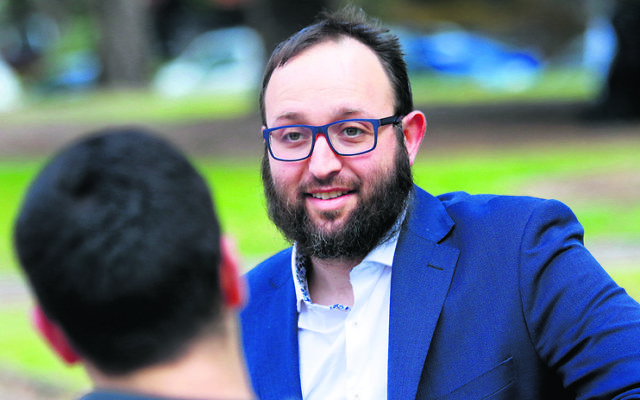Inclusion beyond the wheelchair ramp
This weekend is a time to start challenging our assumptions or the ideas we may have had about those with a disability or families with members who have a disability.
A FEW years ago there was a discussion at a shule board meeting that I attended regarding installing a wheelchair ramp and a disabled bathroom at the centre.
The shule had been built before the modern-day regulations and requirements, and therefore unfortunately it didn’t have a suitable ramp or toilet accommodating those with a physical disability.
There was some robust discussion around the table and, of course, this included financial concerns about the costs involved. At the conclusion it was decided that money would be allocated and discussions began on the next agenda item.
I left that evening feeling quite proud that the shule had been concerned about these matters and that they had agreed they would spend some money. However, the next morning I began thinking that we had all seemed to simply want to tick the box that said we had become more accessible.
What I felt was missing from the discussion was that it wasn’t simply about renovating the space or installing compliant equipment. It was a change in mindset that was required.
This coming Shabbat communities around the world will be participating in a global campaign of disability inclusion and mental health awareness. It is an incredibly important weekend but it must certainly not be a one-time event. This weekend needs to be the catalyst in which communities commit to continue work on being more inclusive.
The challenge is that we need to see this as something which goes beyond installing or building a wheelchair ramp. This needs to be a shift in our mindset.
Each of us has preconceived ideas and implicit biases and these often shape the way we view others who may seem different to us. Shira Ruderman of the Ruderman Foundation said it brilliantly when she said that being inclusive is a state of mind. It is not a project or an initiative.
This weekend is a time to start challenging our assumptions or the ideas we may have had about those with a disability or families with members who have a disability.
We need to remember the basic premise. We are all created in God’s image. We are all human beings and that is what defines us.
This of course will take time. To change our mindset may not be instant. We need to be patient and committed to it and the investment will bear fruit.
We need to make sure that our efforts to be inclusive are just that. Include the people we are trying to assist. Allow people who have disabilities to be empowered and to be a part of the discussion and decision-making process when it comes to special requirements or assistance that they might require.
Society has fortunately come a long way when it comes to our attitude towards people with a disability. It is painful to read of the language that was used to refer to people with a disability and also the thinking at the time to have them kept separate and away from ‘regular’ society.
However it is still not uncommon to see people interacting with someone who has a physical, sensory, or intellectual disability in a different manner that they would with those who don’t have a disability.
This weekend is geared to educate and encourage us to know that socialising with people with disabilities should be no different from any other socialisation.
In a way I think this is another occasion where we can learn from our children. Children see a person, not a disability.
A few years ago my wife and I were privileged to be the chaperones for a Friendship Circle camp. We brought our children and I watched them interact with the children from the camp and I was inspired by what I saw.
I had come with my own biases and preconceived ideas. My attitude and behaviour was probably reflected by those ideas. My children only saw their fellow human beings.
Each of their specific disabilities was not what defined them. It was other people who had defined them by their disability and treated them as such and it is this attitude that needs to change.
It was that day that my children taught me the greatest life lesson. If we can begin to see and view others as people and not define them by labels that we have created, we would have achieved something quite extraordinary.
RABBI DANIEL RABIN is rabbi of South Caulfield Hebrew Congregation.


comments